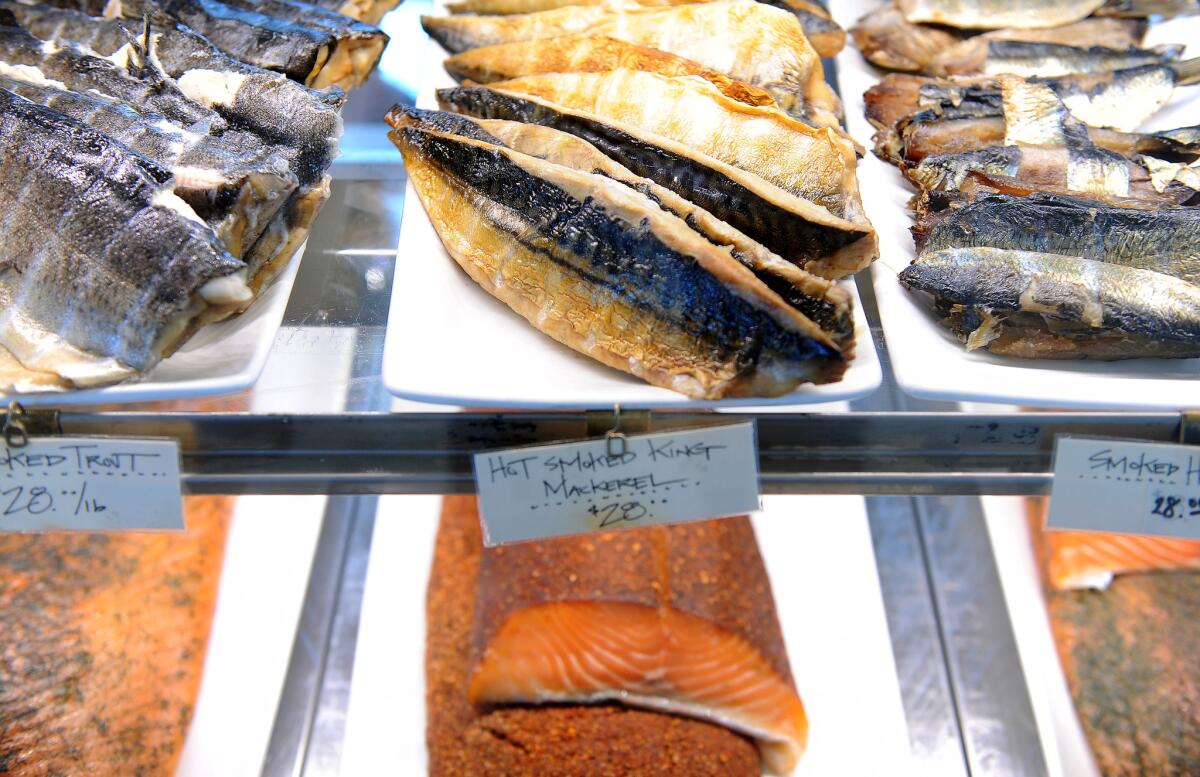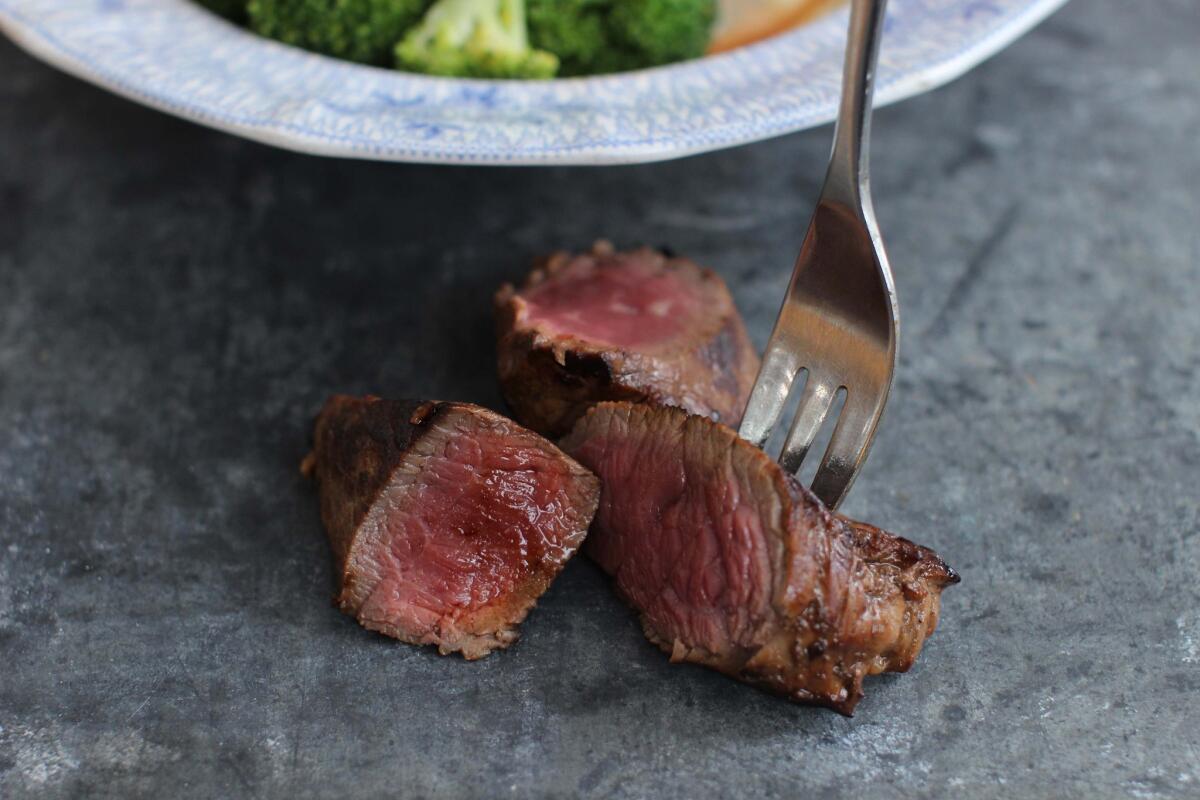Are you getting enough vitamin B12?

B12 is found primarily in animal products, “including fish, meat, poultry, eggs and milk products. B12 is generally not present in plant foods unless added,” says Paul R. Thomas, a scientific consultant.
Los Angeles is filled with B12 devotees who swear by injections (or lozenges, sprays or vitamins) of the vitamin. We asked experts whether B12 supplements live up to the hype:
Who needs it?
“B12 is essential for everyone,” says Dr. Zhaoping Li, director of the Center for Human Nutrition at the David Geffen School of Medicine at UCLA.
The National Institutes of Health says B12 helps keep nerve and blood cells healthy and prevents a particular type of anemia. Deficiencies can cause tiredness, weakness, constipation and loss of appetite, and are linked to numbness including tingling in the hands and feet, depression, poor memory and more.
“The best thing to do to find out if vitamin B12 supplements would be beneficial to you is to have your doctor test your B12” levels, says Paulette Lambert, director of nutrition at the California Health & Longevity Institute.
How to get it
B12 is found primarily in animal products, “including fish, meat, poultry, eggs and milk products. B12 is generally not present in plant foods unless added,” says Paul R. Thomas, a scientific consultant with the NIH. “If you get enough [B12] from the food you eat, you don’t require it as a supplement. If you’re B12 deficient, it can be treated by eating B12-containing foods and/or by taking a supplement.”

Petite beef sirloin in Concord, N.H.
Who’s at risk?
Vegetarians, patients who have had bariatric surgery, chronic alcoholics (who tend to need supplements), and some older people with the condition atrophic gastritis, which prevents them from absorbing much of the B12 naturally present in food.
Foods high in B12
Liver, clams, salmon, beef, turkey, sardines, milk, cheese and yogurt are among the foods highest in B12. Fortified cereals and grains abound, and many brands are also jumping on the B12 bandwagon. (Powerade ION4, Red Bull 5-Hour Energy and Starbucks’ Blueberry Acai Refreshers all tout their B12-boosting properties.) The recommended daily allowance of B12 for adults is 2.4 micrograms a day.
What’s the best way to take B12?
“The evidence suggests no difference in effectiveness between oral, sublingual (under the tongue) and spray forms. One should pay more attention to the amount of B12 in the product rather than the form,” says Thomas. “If you are or think you’re B12-deficient, you should be speaking to your healthcare providers about restoring normal B12 levels and what amount to take.”
Does B12 really boost energy?
“B12 helps your body convert the food you eat into energy, but unless you’re deficient in B12 there isn’t evidence B12 supplements give you more energy,” Lambert says. “Injections give you larger amounts and we don’t know the safety of that.” She warns against mega-dosing supplements in general without the input of your doctor.

Raw egg in an egg carton.
“There are a number of people [who may not be B12 deficient] who claim that when they get these shots they feel better, more energetic and so on,” says Thomas. “It may be that for some people there is some kind of benefit we haven’t yet found out from studies … a lot of people could be getting a placebo effect by being assured by a clinic that this is going to promote a sense of vitality.”



